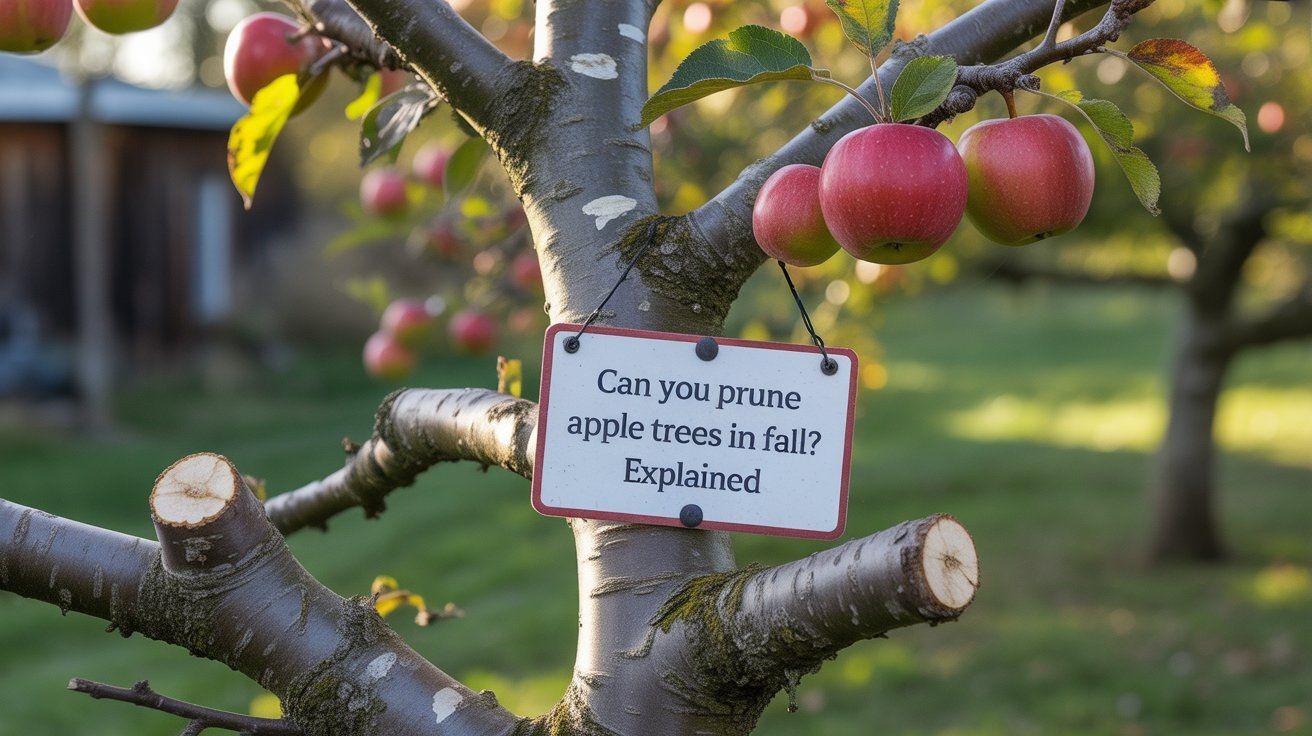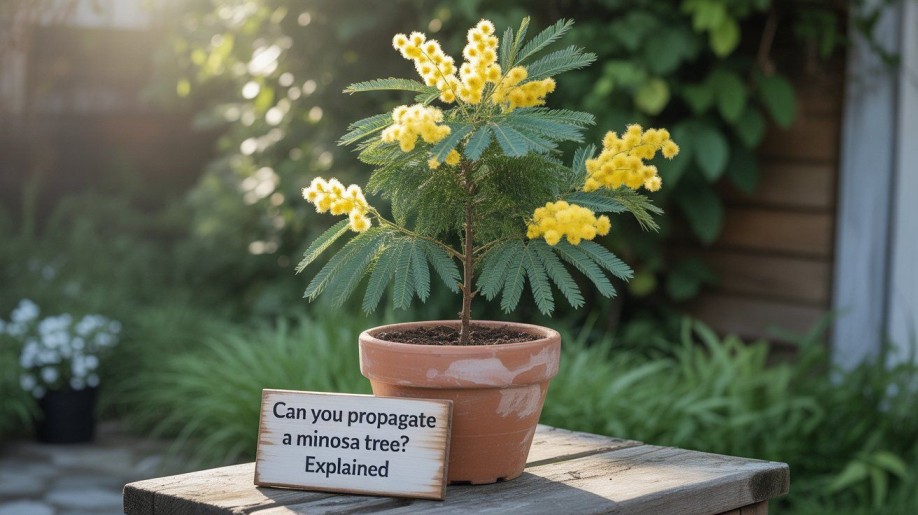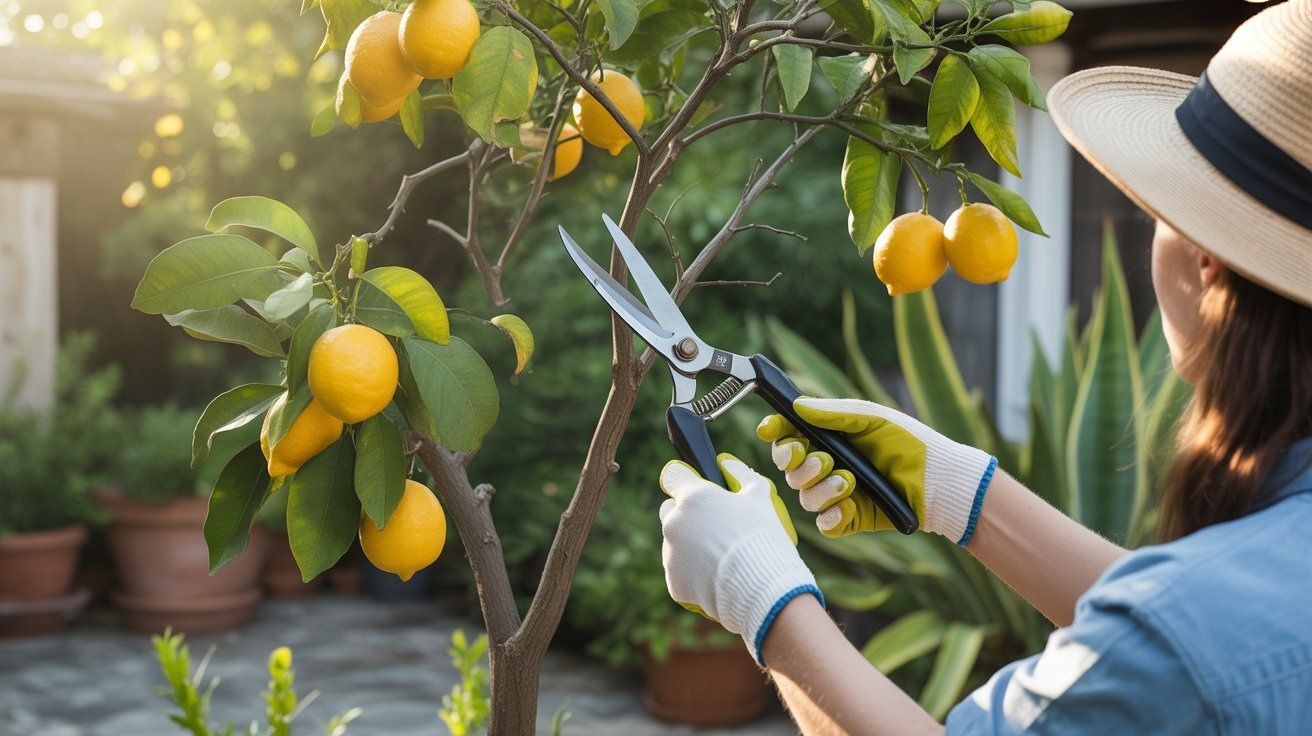Can you prune apple trees in fall? Learn if autumn is the right time, the risks involved, and the best pruning practices for healthy apple growth.
Understanding Apple Tree Growth Cycles
Before deciding can you prune apple trees in fall, it’s important to understand the growth cycle. An apple tree moves through stages: spring budding, summer fruiting, fall preparation, and winter dormancy. Pruning during dormancy allows the tree to heal without stressing its system.
However, pruning in fall can interrupt this cycle, making the tree vulnerable to disease and frost damage. Knowing when a tree rests is the key to ensuring healthy regrowth and better fruit production.
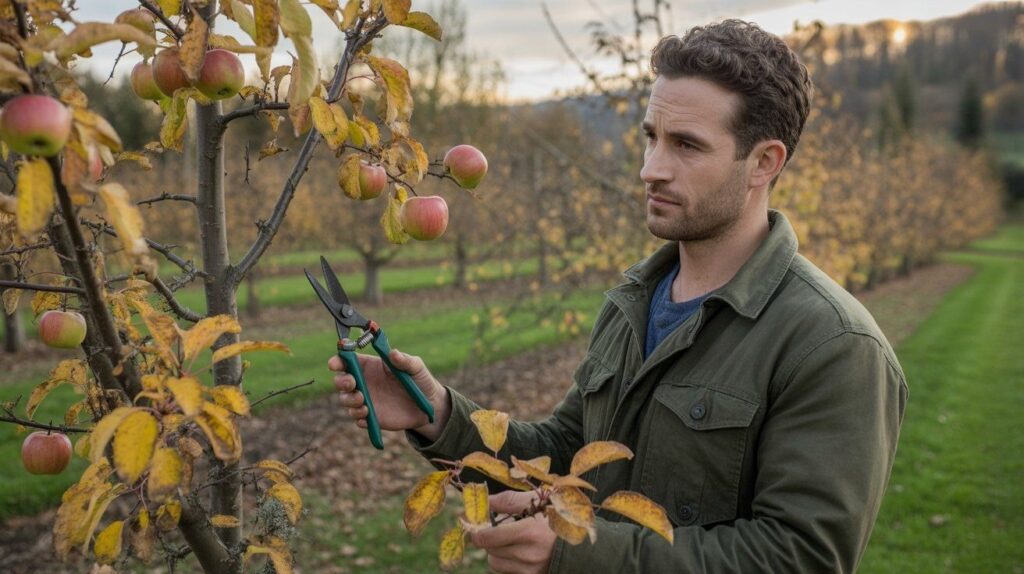
Risks of Pruning Apple Trees in Fall
When asking if you can prune apple trees in fall, consider the risks. Fall pruning can cause infections, attract pests, and slow healing since trees aren’t fully dormant.
This weakens their defenses and increases frost damage risk. It’s best to wait until the dormant season for healthier growth.
Best Time to Prune Apple Trees
While many gardeners wonder can you prune apple trees in fall, the best time is actually during the late winter to early spring. At this stage, the tree is fully dormant, which reduces the risk of disease and ensures wounds heal quickly when growth resumes.
Pruning during this period also allows you to see the tree’s structure clearly, making it easier to remove weak or crossing branches. This timing supports healthier growth and a stronger apple harvest.
How to Properly Prune Apple Trees
When learning can you prune apple trees in fall, it’s just as important to know how to prune correctly. Start by removing dead, diseased, or damaged branches, as these drain energy from the tree. Next, thin out any crossing limbs to improve airflow and sunlight penetration, both of which reduce the risk of pests and fungal issues.
Always cut just above a bud that points outward to encourage healthy shaping. Using clean, sharp pruning tools ensures a smooth cut and a stronger tree structure.
Risks of Pruning in Fall
| Pruning Aspect | Fall Pruning Effect | Potential Risk / Issue | Better Alternative |
|---|---|---|---|
| New Growth Trigger | Stimulates fresh shoots before winter | New growth damaged by frost | Delay pruning until late winter or early spring |
| Open Wounds | Cuts stay exposed in damp weather | Increases risk of pests & fungal infection | Prune during dry, dormant season |
| Tree Stress | Excessive pruning in fall | Reduces stored energy for winter survival | Limit pruning to light corrective cuts only |
| Long-Term Health | Weakens structure if done repeatedly | Slows regrowth & fruit production | Time pruning for dormancy to promote vitality |
Best Time to Prune Apple Trees
When considering if you can prune apple trees in fall, timing matters. The best time is late winter or early spring before buds break, when the tree is dormant.
This reduces stress, prevents disease, and promotes healthy growth. Early pruning also improves airflow, sunlight, and fruit yield for a healthier, more productive tree.
How to Prune Apple Trees Correctly
When asking can you prune apple trees in fall, it’s equally important to know how to do it properly. Start by removing any dead, damaged, or diseased branches. Next, thin out crowded areas to improve air circulation and allow more sunlight to reach the inner branches.
Focus on shaping a strong central leader and balanced side branches. Use sharp, clean pruning tools to prevent infections. Correct pruning not only maintains the tree’s health but also boosts long-term fruit production.
Benefits of Pruning Apple Trees
Understanding can you prune apple trees in fall also means recognizing the benefits of pruning. Proper pruning improves airflow within the canopy, reducing the risk of fungal diseases. It allows more sunlight to penetrate, which enhances fruit color and sweetness.
By removing weak or crossing branches, you encourage stronger growth and more consistent harvests. Additionally, pruning shapes the tree for easier maintenance and harvesting. Overall, regular pruning ensures healthier trees and higher-quality apples year after year.
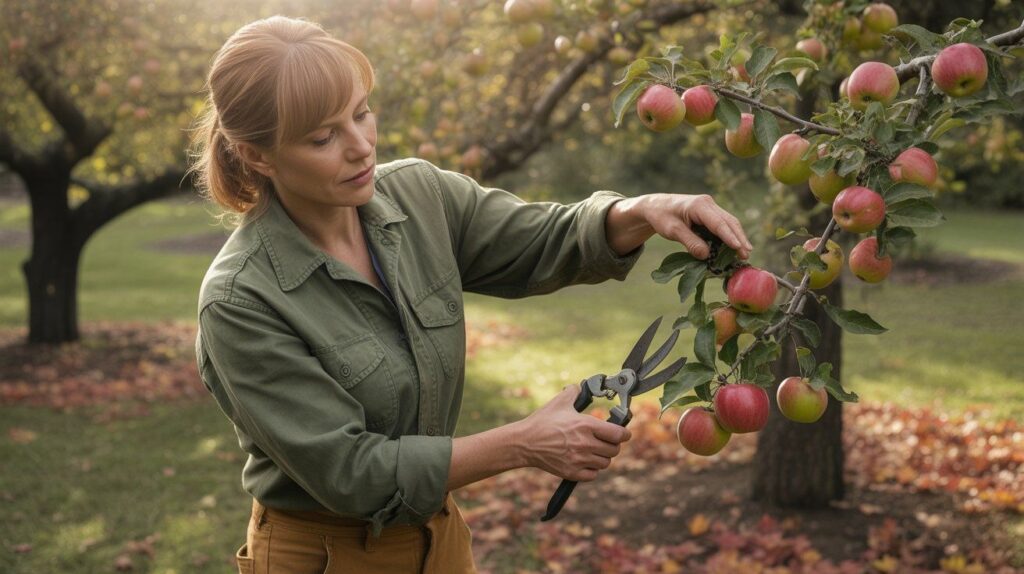
Risks of Pruning in Fall
When asking can you prune apple trees in fall, it’s important to weigh the risks. Cutting branches in fall can stimulate new growth right before winter, leaving the tree vulnerable to frost damage. Pruning wounds may also heal slowly in colder weather, increasing the risk of disease or pest invasion.
Additionally, over-pruning at this time can weaken the tree’s overall health and reduce next season’s fruit yield. Understanding these risks helps you decide the best timing for pruning.
Best Time to Prune Apple Trees
Gardeners often ask if they can prune apple trees in fall, but the best time is late winter or early spring before buds swell. Pruning during dormancy helps wounds heal faster, prevents disease, and promotes stronger growth and better fruit.
How to Prune Apple Trees Correctly
When considering can you prune apple trees in fall, it’s crucial to know how to prune effectively. Begin by removing dead, diseased, or damaged branches to prevent energy loss. Thin crowded areas to improve air circulation and sunlight penetration, which reduces disease risk.
Focus on maintaining a strong central leader and evenly spaced side branches. Always use clean, sharp pruning tools to avoid infections. Proper pruning strengthens the tree’s structure and supports healthier growth and fruit production.
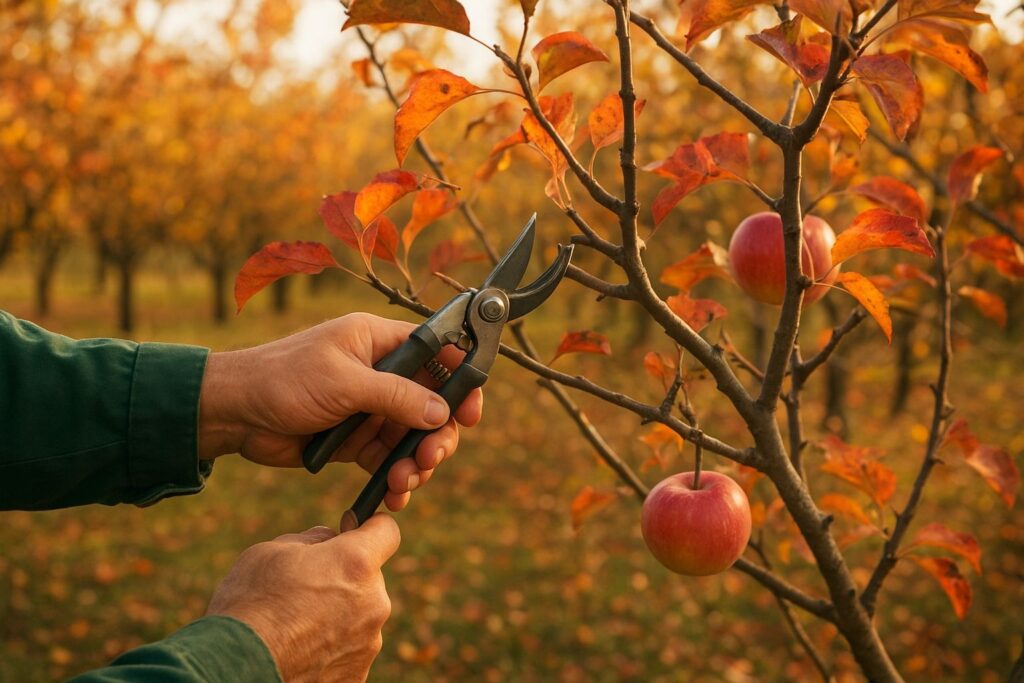
Common Mistakes to Avoid
When pruning apple trees in fall, avoid common mistakes: don’t prune too late to prevent frost damage, and don’t over-prune as it can reduce next year’s fruit. Remove diseased or crossing branches to prevent pests, and use clean, sharp tools to avoid damage.
FAQ: Can You Prune Apple Trees in Fall
Q1: Is it bad to prune apple trees in fall?
Yes, it can be risky. Fall pruning may leave open wounds that are vulnerable to frost and disease.
Q2: How late can you prune apple trees?
Late winter or early spring, when the tree is dormant, is safest.
Q3: Does pruning in fall affect fruit production?
Heavy pruning in fall can reduce growth and next year’s yield.
Q4: Can light pruning in fall be okay?
Yes, light pruning for shaping is usually safe if done carefully.

Jhanzaib Khan, with over 50 years of dedication to nature and tree conservation, is a leading authority in the world of trees and environmental care. From his early years exploring forests to guiding communities in sustainable tree planting, Jhanzaib has combined hands-on experience with a lifelong passion for the environment. He specializes in tree species identification, tree care, forest management, and environmental awareness. His insights have been featured in multiple nature blogs, workshops, and local conservation projects.

